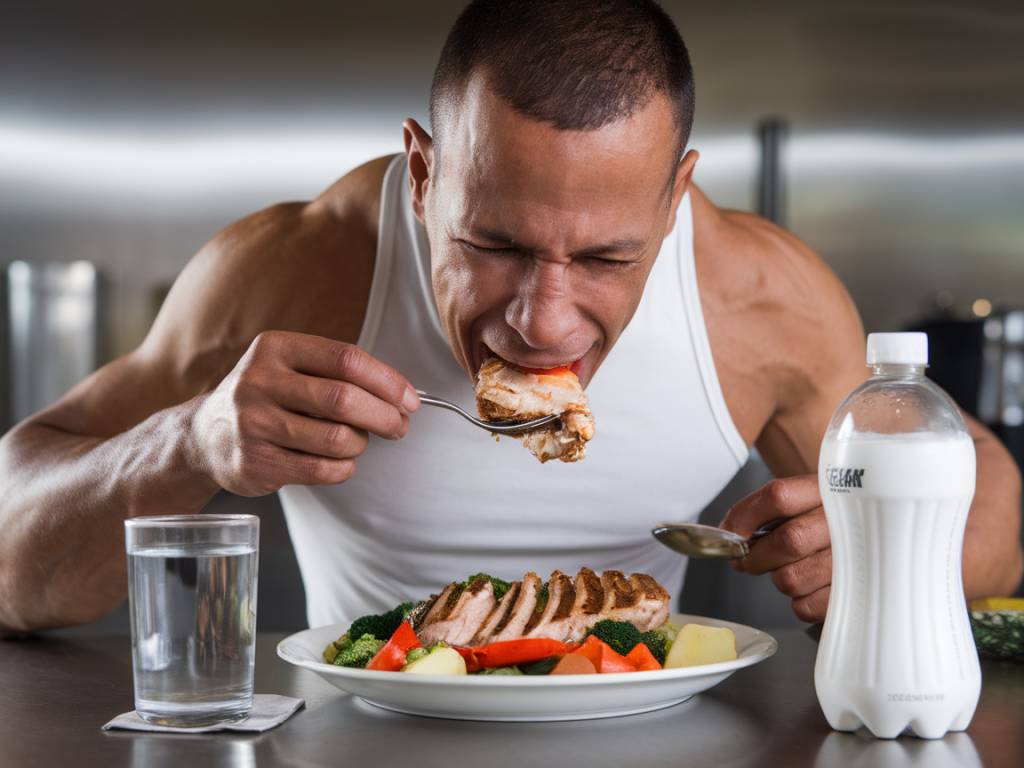Fueling Your Game: How Diet Impacts Sports Performance
When it comes to sports performance, one thing is certain: what you fuel your body with matters. Whether you’re a weekend warrior, a serious competitor, or just someone who loves hitting the gym, your diet can either elevate your game to new heights or leave you struggling to keep up. But have you ever stopped to ask, how exactly does what we eat impact our athletic abilities? Let’s dive into the crucial (and fascinating) connection between diet and sports performance.
Why Food Is More Than Just Energy
Think of your body as a finely tuned sports car. You wouldn’t fill up a Ferrari with low-grade fuel, would you? The same principle applies to your body. The nutrients you consume don’t just provide the energy needed for physical activity—they also play a key role in muscle recovery, hydration, mental focus, and overall endurance.
When your diet lacks essential nutrients, it’s like trying to run a marathon on a half-empty tank. Sure, you might be able to push through, but you’ll likely end up fatigued, slower, and prone to injury. On the flip side, a well-balanced diet tailored to your training can improve not only your game-day performance but also how quickly you recover afterward.
Macronutrients: The Big Three
Let’s break down the foundational blocks of any athlete’s diet: macronutrients—carbohydrates, proteins, and fats. Each plays a unique and essential role in sports performance.
- Carbohydrates: Often called the body’s main source of energy, carbs are stored as glycogen in your muscles and liver. When you’re sprinting toward the finish line or lifting heavy weights, glycogen is what your body calls upon for quick bursts of power. Think whole grains, fruits, sweet potatoes, or even that old-school peanut butter sandwich.
- Proteins: Ever felt sore the day after a particularly grueling workout? That’s where protein comes to the rescue. It repairs and rebuilds torn muscle fibers, helping you come back stronger. Lean meats, eggs, beans, and tofu are all great sources of protein.
- Fats: While carbs may get the spotlight, healthy fats are the slow-burning fuel every athlete needs. Avocados, nuts, seeds, and fatty fish like salmon can help sustain longer workouts and maintain overall energy levels.
Micronutrients: The Unsung Heroes
While macronutrients steal the show, micronutrients—vitamins and minerals—are just as critical to peak performance. For example:
- Iron: Essential for transporting oxygen throughout your body. Low levels of iron can leave you feeling sluggish and fatigued. Look to foods like spinach, lean red meat, or iron-fortified cereals.
- Calcium and Vitamin D: Vital for bone health, especially for high-impact sports like running or basketball. Dairy, leafy greens, and even a little sunlight can do the trick.
- Magnesium: Helps with muscle function and prevents cramps. Bananas, almonds, and dark chocolate are your go-to buddies here.
Neglecting these little but mighty nutrients can have a big impact, from reduced stamina to slower recovery times.
The Timing of Your Meals Matters
Ever heard the saying, “Timing is everything”? It’s especially relevant when it comes to eating. Consuming the right nutrients at the right times can significantly impact how you perform.
- Pre-workout: Aim for a mix of carbs and protein about 2-3 hours before exercise. A classic example? A bowl of oatmeal with some fruit and almond butter.
- During exercise: For activities lasting more than an hour, consider snacks like energy gels, bananas, or electrolyte drinks to keep your energy up.
- Post-workout: Your body is basically screaming, “Refuel me!” after a hard session. A combo of protein and carbs within 30 minutes can kickstart muscle repair and glycogen replenishment. Try a protein smoothie or a turkey sandwich.
Hydration: The Overlooked MVP
Think you can power through a session without drinking enough water? Think again. Staying hydrated is crucial for maintaining endurance, cooling your body, and preventing cramps. A 2% drop in body water levels can significantly hurt your performance—and that’s not even during an extreme workout!
Make hydration a part of your game plan. Water is great for most activities, but if you’re sweating buckets or exercising for an extended period, electrolyte replacement becomes essential. Sports drinks or even DIY electrolyte mixes can help bring your sodium and potassium levels back to balance.
Real-Life Examples: Athletes Who Got It Right
Still not convinced? Professional athletes swear by the power of nutrition. Take Michael Phelps, who famously consumed close to 12,000 calories a day at his peak—fueled by a precise balance of carbs, proteins, and fats to match his grueling swim regimen. Or consider Venus Williams, who adopted a plant-based raw diet to help manage an autoimmune condition, improving both her performance and overall health.
Closer to home, maybe it’s that gym buddy who swears by their post-workout protein shake or the runner whose shift to whole foods shaved minutes off their personal best. The evidence is all around us: the right diet can truly be a game-changer.
Takeaway Tips for Optimizing Your Diet
Feeling inspired? Here’s how to take your energy and performance to the next level:
- Keep it balanced: Aim for a mix of carbs, proteins, and fats across your meals.
- Plan ahead: Meal prep isn’t just for fitness influencers. It can keep you consistent and eliminate last-minute junk food runs.
- Listen to your body: Tired, sluggish, or always sore? Your diet could be the culprit. Experiment with adjustments and track your performance.
- Stay hydrated: Sip water throughout the day, and don’t forget electrolytes during intense sweat sessions.
- Consult a pro: If you’re serious about your performance, consider speaking to a sports nutritionist for a tailored plan.
At the end of the day, you can’t out-train a poor diet. By making intentional food choices that support your athletic endeavors, you’ll not only feel better but also perform better—whether on the trail, in the gym, or on the court. So, what’s on your plate today?
